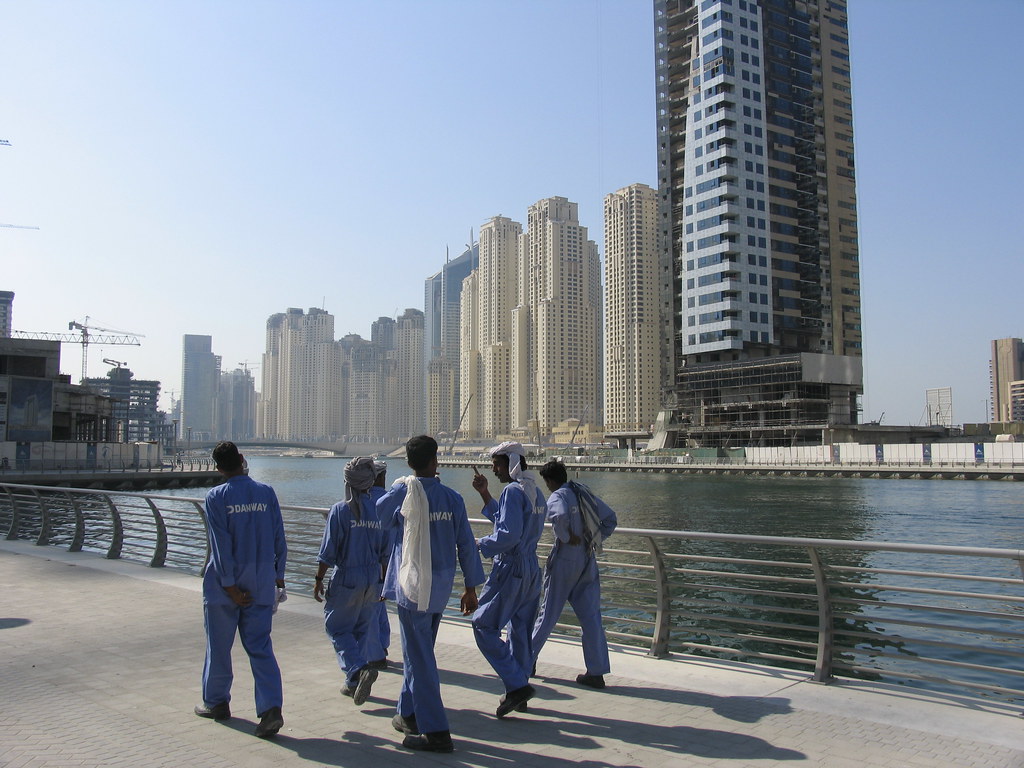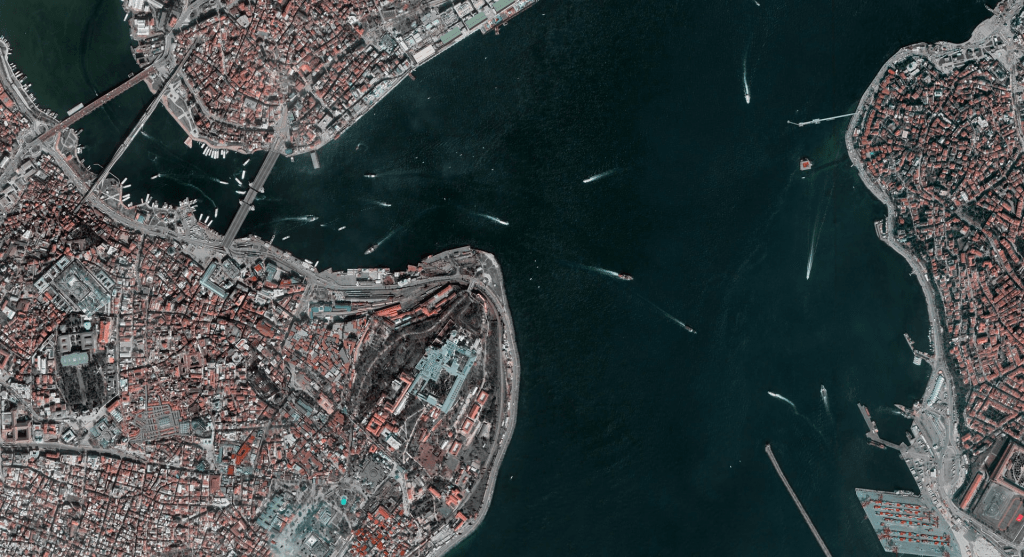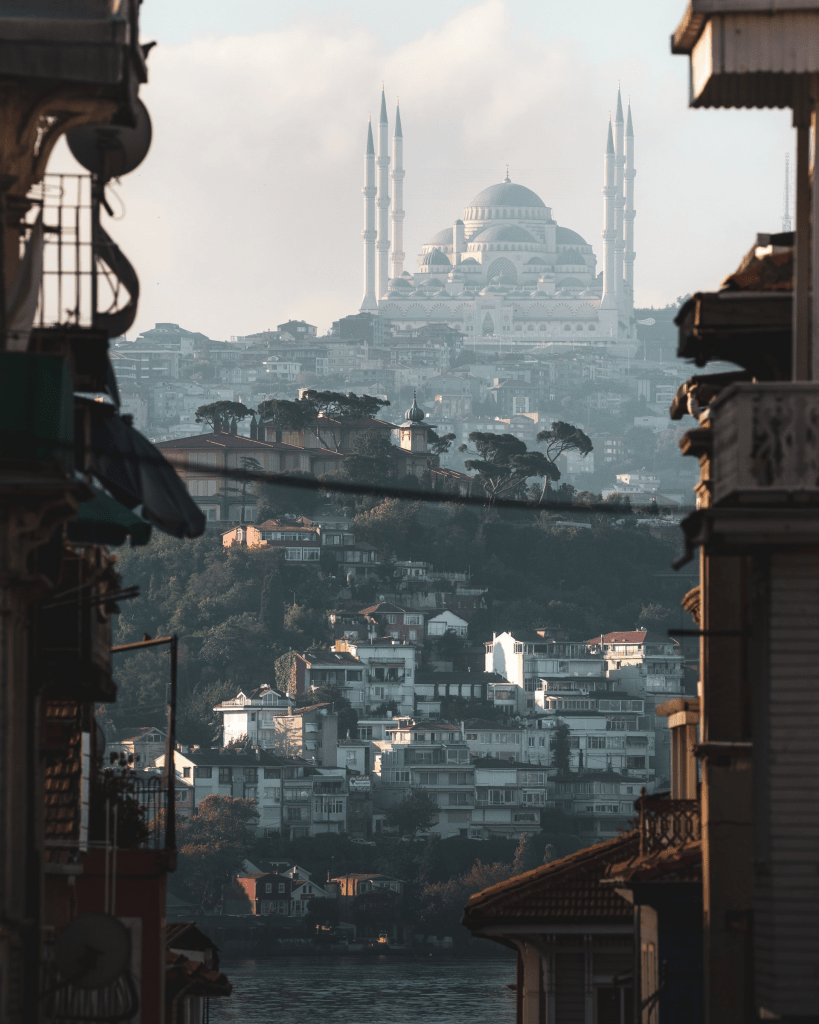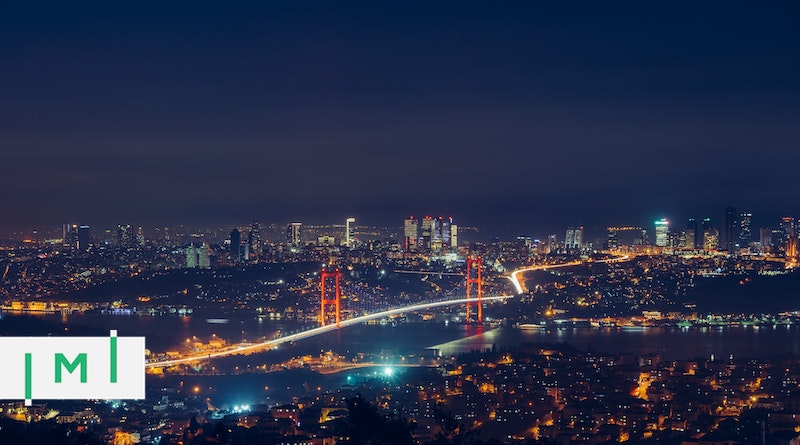Rich Indians Should Flock to Istanbul – Not to Dubai
By contributor
India has been on the brink of an abyss since well before the pandemic. Granted, ill-thought-out and hastily-implemented lockdowns in the name of containing the virus galvanized the socio-economic turmoil ordinary citizens are facing today. In a country where tertiary, over-the-counter dealings constitute the lion’s share of business activity, bringing life to such an abrupt standstill was bound to engender large-scale foreclosures and sabotage livelihoods to the point of no return. The acche din, or good days, that were pledged to voters during Narendra Modi’s early days in office are yet to materialise and have never seemed more like a mirage than at present.
To that end, Indians from all strata of society are frantically charting out their escape route before further misery ensues. Even those belonging to modest backgrounds are not letting financial constraints hold them back. A recent DW report unveiled agricultural workers from the Northern state of Punjab shelling out upwards of €10,000 for Schengen tourist visas to ultimately land clandestine work in Portugal’s raspberry plantations.
While parting ways with one’s life savings for migratory purposes remains a ubiquitous phenomenon at the grassroots level, it does speak volumes of the masses’ steadfast desire to abandon their homeland at any cost. Alternative citizenship or residency is no longer a mere plan B for the people of India, but an imperative investment to which they are attaching the utmost importance.
Looming fiscal menaces
There’s talk of piloting a FATCA-esque scheme in the near future. An initiative of this kind would subjugate non-resident Indians (NRIs) to income tax, irrespective of the jurisdiction in which they reside. Furthermore, opening offshore accounts will prove a herculean task for this contingent as private banks generally eschew clients liable to worldwide taxation (just ask Americans trying to open accounts abroad).
Given the current government’s track record of passing momentous legislation on a whim, it would come as no surprise to see such a policy ratified without duly apprising those targeted. Should this stunt be pulled off as haphazardly as the demonetization back in 2016, those on the receiving end will be left with little choice but to brace themselves for a “no way out” scenario.
According to an article published last week by the Times of India, more than 600,000 Indians gave up their citizenship over the course of the past five years. Cognisant of this undesirable trend, rest assured that those at the helm will use every trick in the book to mitigate a further outflow of talent and wealth. Tripling or even quadrupling passport renunciation fees, instructing Indian diplomatic missions to impose unnecessary red tape on anyone planning to switch allegiances, and factoring in a clause that will fiscally bind ex-nationals to state coffers years after doing away with civic ties are just some plausible deterrence measures that might be enforced to turn the tide.
Jumping on the Dubai-bound Bandwagon

Despite being home to a fairly sizeable concentration of billionaires, there is a unanimous realisation among the country’s high net worth segment that India is no place to enjoy or flaunt one’s riches. In light of the worsening situation back home, hordes of well-to-do Indian entrepreneurs and retirees have been flocking to Dubai without giving much thought to other viable second home options.
The glitzy city-state certainly offers much-needed respite to those leaving behind abysmal living conditions in India. That said, no one-size-fits-all prognosis can be applied to aspiring émigrés from the subcontinent’s most populous country. Anyone keen on making this all-important move should be wary of the inadequacies prevalent in even the most sought-after locations.
The introduction of “Golden Visas” has amplified the already profound hype over relocating to the UAE. However, very few Indian investors consider the intricacies associated with procuring long-term residence. Contrary to common perception, these visas are not a surety of permanence but a gesture of goodwill with a finite validity period. Furthermore, this facility can be easily revoked should recipients unknowingly find themselves on the wrong side of the law or bilateral ties between their respective governments and the UAE deteriorate. All the more worrisome is that there is no appeals mechanism to contest and overturn any unfavorable decisions.
The stipulated amount of AED 10 million to qualify is no laughing matter either, especially seeing as the performance of Dubai’s real estate market remains fairly unremarkable when compared with pre-2008 levels. For those looking to move in on a full-time basis and not overly preoccupied with subsequent rental yields, there are a number of factors – geopolitical or otherwise – to consider before making such a commitment. After all, the Middle East has earned its title as the world’s powder keg for good reason. The UAE is no longer a sanctuary insulated from proxy wars and powerplay dynamics grappling the wider region.
Brutally unforgiving heat for the better part of the year means it is not conducive to spending time outdoors except during the December to February window. The extreme weather also acts as a major disincentive to undertake regular exercise. Lack of physical activity happens to be the foremost reason why health complications such as diabetes and obesity are so pronounced among all age groups in the country. Also worth bearing in mind is that local agricultural produce is scare and low-grade due to inhospitable climatic conditions. The UAE is heavily reliant on food imports from abroad that are infused with artificial preservatives to prolong their shelf life and withstand the country’s aridity, the intake of which has further repercussions on one’s well-being.
Principal applicants are not driven purely by self-interest and tend to take the welfare of their families into consideration before following through with resettlement plans. Run-of-the-mill private schools are exorbitantly-priced and severely bite into the income of salaried parents. Dubai has made a concerted effort of late to position itself as a higher education powerhouse in the region. However, limited part-time work opportunities serve as a major encumbrance for budget-conscious students trying to make ends meet. In addition to this, university life in the UAE is quite mundane relative to what one would experience in the West. The absence of street festivities, needing a liquor license to buy alcohol, pedestrian-unfriendly infrastructure, and the astronomical cost of living are just some impracticalities associated with pursuing undergraduate or postgraduate studies in a strictly conservative nation.
Academia aside, there is barely any emphasis on learning new languages in a former British protectorate where English is spoken so profusely. Multilingualism is a marketable life skill that children raised in Dubai lose out on in the long run. The Indian diaspora lives on the fringes of society, with one foot firmly entrenched in their country of origin while day-to-day interaction is confined, more or less, to members of their own community. This cliquish propensity is precisely why the overwhelming majority fail to integrate and broaden their horizons. Having zero command of Arabic together with being an Indian passport holder massively handicaps one’s earnings potential and career scope in the UAE.
Dubai has made headlines worldwide as a bastion of progress and stability in the Arab world. Although there are perfectly justifiable grounds for this characterization, the federation has leapfrogged into modernity while retaining some tribal practices in its constitution. The fact that a foreigner’s legal status in the country is bound to their employment means an inevitable homecoming once their tenure is up. There is also an unwritten obligation to constantly demonstrate subservience and indebtedness towards the leadership for the privilege of being able to live and work in their country.
Demographically, the indigenous people account for a minority of the overall population. As such, there are initiatives in place to empower the locals, which might take some getting used to for newcomers to the Gulf. A noteworthy example is the Emiratization drive which impels private sector companies to recruit a certain quota of UAE nationals against their will. The bulk of Emiratis prefer cushy and undemanding public service posts with considerably shorter working hours. From the perspective of a business owner, a catch-22 arises whereby non-adherence to this policy could attract stiff penalties while playing ball means taking on disinterested employees who command an unreasonably steep remuneration in return for doing the bare minimum they can get away with.
Consider Istanbul

Istanbul is so much more than just a conceptual bridge between East and West. Regrettably, this dreamy city is yet to hit home with Indians on the move. There is an inherent mental blockage that places Turkey on the back burner. News outlets in India, which are essentially an extended mouthpiece of the government, continue to spread misinformation on the current state of affairs in this Eurasian gem. Nonetheless, anyone who has spent a considerable length of time in Istanbul can testify that it ranks second to none in terms of liveability and safety.
By virtue of straddling two continents, there is an interesting juxtaposition of districts with a quintessentially European charm and other pockets where Oriental influences are more acute. Locals often quip that despite some mosques being situated just a stone’s throw away from churches and other religious institutions, people of different confessions do not throw stones but flowers at each other. Deep-rooted secularism championed by the nation’s founding father Mustafa Kemal Atatürk lends credence to Istanbul’s modern-day reputation as a true melting pot of cultures.
In stark contrast to the Gulf states where tolerance is still a raw phenomenon often conflated with dependence on guest workers, Turkey has a long-standing tradition of embracing pluralism, humanism, and harmonious coexistence. There is an unmistakable willingness on the part of the Turks to ensure outsiders are fully immersed into their way of life and in sync with the values they hold dear. The country is extremely heterogeneous insofar as ethic composition is concerned, though Turkish identity still reigns supreme. Natives take immense pride in their nation’s rich heritage, plying a number of customs and trades which date back several millennia and have been passed down generationally.
There is a palpable and uplifting energy Istanbul’s youthful population radiates from living in the moment and taking each day as it comes. This city is a breeding ground for artisans, painters as well as writers given the extent to which free thinking and letting one’s imagination run wild are encouraged. There is no shortage of cultural enrichment for the creatively-inclined to draw inspiration from, be it strolling through the lively and colourful bazaars where anything goes, sipping kahve in one of many meticulously ornate bistros or soaking in the fresh air and soothing sound of seagulls chirping during a ferry boat ride across the Bosphorus.
Turkish Airlines has capitalised on Istanbul’s enviable location – situated within a 3-hour equidistant radius of Moscow, Berlin and Tehran – to become an undisputed industry leader. The country’s flagship carrier boasts the most extensive network coverage, having even surpassed rivals such as Emirates and Qatar Airways. On a broader scale, the company has emerged as an effective oft power tool to promote inbound passenger traffic from all over the world, including the subcontinent. Barring the past few years till date, Turkish Airlines operated daily non-stop charter flights to and from New Delhi as well as Mumbai which greatly facilitated the hosting of several high-profile Indian weddings in Turkey.

The sheer volume of tourists Istanbul welcomes throughout the year has had a positive spillover effect on its dwellers. There are numerous leisure activities residents can partake in during their downtime. Given the abundance of nature and greenery this megapolis is blessed with, there are a plethora of parks, forests and reserves which allow visitors to seclude themselves from the hustle and bustle in urban areas. The local metropolitan municipality, or IBB,has seen to it that Istanbul does not morph into a concrete jungle and done a stellar job at preserving historically-significant sites and monuments. Old world charm impeccably compliments contemporary developments taking place at breakneck speed across the city.
The Turks and Indians have much in common in the way of dietary habits and taste palettes, with the latter unlikely to encounter any kind of culinary shock during their time in Istanbul. Turkish cuisine is incredibly flavoursome and nourishing, not to mention unbelievably inexpensive. Both meat-based as well as vegetarian dishes are generously garnished with homegrown spices and freshly-sourced ingredients, as is the case in Indian kitchens. Another similarity shared by both peoples is the tendency to consume rice and flatbreads as accompaniments to main meals. There is no irony behind this civilisational overlap since a number of specialties, predominantly in the North of India, trace their origins to recipes derived from and introduced by the Ottoman Empire.
Turkey’s Astute Diplomatic Push
The Republic’s foreign policy is centred upon assigning an equal weighting to its partners across the globe rather than disproportionately orienting itself towards a particular geography. The Justice and Development (AK) party has moved with the times by taking stock of emerging powers in an increasingly multi-polar world. The “Asia Anew” pivot and recent outreach to Africa are the brainchildren of a forward-thinking government with grandiose ambitions. Establishing a strategic cobweb with lucrative markets that have been overlooked by Western hegemons for years lies at the very core of their manifesto.
In all likelihood, Turkish passport holders will soon secure visa-free access to the Schengen Zone as a preamble to full-fledged membership of the bloc. Ankara enjoys tremendous leverage over Brussels at the negotiating table and has played its hand quite shrewdly so far. With the omnipresent threat of another refugee crisis unfolding, European Union (EU) policymakers have little choice but to inevitably throw the Turks a bone. While other accession member candidates have forgone statehood in a desperate bid to eventually join the union, Turkey remains unequivocal about its sovereignty being a red line.
Meanwhile, the Indian government is overtly shying away from all the tenets and underpinnings of a liberal democracy. In a nation already cursed by a centuries-old caste system, Prime Minister Narendra Modi and his cabinet appointees have fermented unprecedented division among their own countrymen by effectively condoning the ostracisation of minorities. Religious intolerance is at an all time high as the ruling party sweeps deeply troubling advents like cow vigilantism and mob lynchings under the carpet to appease right-wing Hindu loyalists.
Transatlantic powers have already taken concrete steps towards reprimanding China for their alleged mistreatment of the Uighurs, with a number of heavyweights even threatening to boycott the 2022 Winter Olympics in Beijing. Given the uncanny parallels at play between the situation in Xinjiang and the human rights atrocities being committed in Kashmir, ordinary Indians could well follow suit as the next victims of Western-led sanctions. Should the BJP wield enough autonomy over time, India runs the very real risk of becoming an out-and-out failed state.
For those who have come to senses with this terrifying prospect and begun packing their bags, Turkey’s citizenship-by-investment scheme is too sweet a deal to pass up. Acquiring a much stronger travel document in as little as three months upon making a minimum property purchase of $250k might seem like reason enough to proceed. Above and beyond the obvious perks associated with heading down such a seamless path to naturalisation, the imminent upswing this transcontinental superpower is about to undergo makes Turkish CIP an exceptionally hot commodity for disenfranchised Indians. The beauty of this program is that it entails no sunk cost whatsoever, but merely a reallocation of assets upon which Indian investors are bound to accrue fruitful returns.


